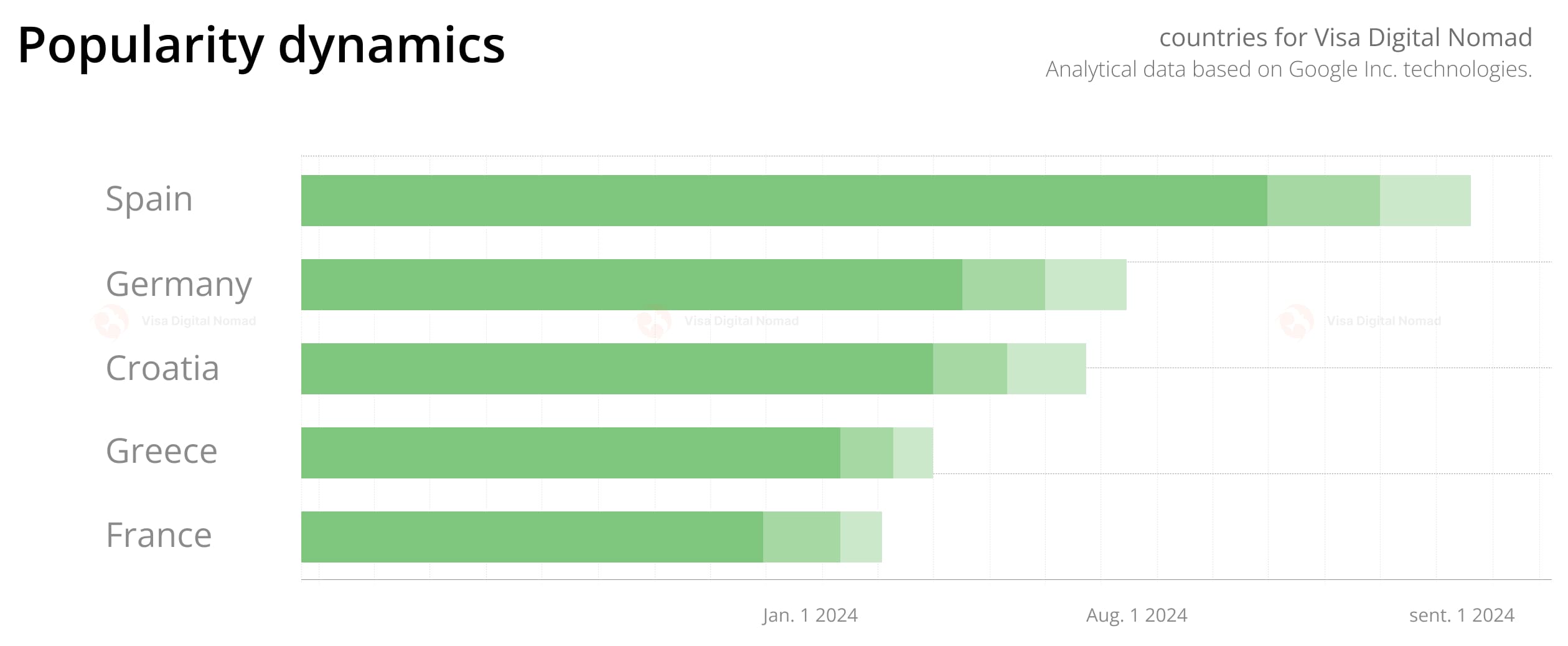A digital nomad can work from anywhere in the world. All you need is a reliable internet connection. Freelancers often work comfortably in cafes or coworking spaces in countries with a high standard of living and low cost of living.
Do you also dream of traveling from city to city, working in cozy cafes or sunny bungalows by the sea? Now is the perfect time to dive into the digital nomad lifestyle. Thanks to technological advancements, the flexible working conditions of digital nomads can help satisfy your passion for travel without waiting for the next vacation.
Not long ago, the best jobs for digital nomads were limited to the IT field, but that’s no longer the case. Today’s digital workspace has evolved so much that you can build a career as a digital nomad in almost any industry.
Suitable Professions for a Digital Nomad Visa
Marketing
- SMM Manager
- Content Manager
- Traffic Manager
- SEO Specialist
- Internet Marketer
- Copywriter
- Translator
- Web Analyst
IT Specialists
- Web Developer
- Database Administrator
- ERP Programmer
- Software Tester
- HTML Coder
- Frontend Developer
- Information Security Specialist
- eSports Player
- Embedded Programmer
- Android/iOS Developer
Design and Creativity
- Graphic Designer
- Web Designer
- UX/UI Designer
- Communication Designer
- Videographer
- Photographer
Business
- Business Consultant
- Remote Personal Assistant
Additionally, online tutors and coaches also have numerous opportunities for remote work.
Requirements for Obtaining a Visa
Now that many professionals understand that new technologies and telecommunications eliminate the imbalance between professional development and travel, governments of many countries strive to make it as easy as possible for freelancers by introducing or expanding their digital nomad visa programs. Let’s figure out what documents are needed for a digital nomad visa.
Applying for a digital nomad visa can seem like a long and complicated process. To be fair, in some countries the processing really takes longer and requires many documents, but overall the application process and requirements for candidates are similar in each country.
According to Google Trends and Yandex.Wordstat, the number of searches for the status of “digital nomads” in Russia has significantly increased in the last four months of 2024, almost doubling.
Main Candidate Criteria
- Adulthood.
- Having a certain monthly income, the amount of which varies depending on the country. There are two options available – meeting the minimum wage in a specific country or meeting a legally established amount. In some countries, one of the main criteria includes having a bank account in a local bank with the required deposit.
- Proof of having a job that can be done from anywhere in the world. This can be proven by owning a business (available as a sole proprietor or self-employed) or freelancing. An active contract with a foreign employer can also be a basis for applying for a digital nomad visa.
Additional Requirements
Each country sets a number of additional requirements that each applicant for a digital nomad visa must meet. These may include:
- A valid passport or other identification document.
- Valid residence permit.
- Medical insurance covering all medical risks. Some countries require a health certificate.
- Statement detailing the reasons for relocation.
- Certificate of no criminal record.
- Proof of payment of fees.
- Marriage certificate (if applying as a spouse).
- Proof of proficiency in the local language at the appropriate level.
- Proof of accommodation in the country – a purchase or rental agreement.
- Some countries require an application for a taxpayer identification number when applying for a digital nomad visa.
Answers to Important Questions
A digital nomad visa can cost between $200 and $2,000. In some Caribbean countries, the highest application fees are set: up to $3,000 for family applications.
However, some countries, such as Georgia, offer digital nomad visas for free to attract more applicants.
In 2024, you can obtain a digital nomad visa and get special conditions for remote work in more than 60 countries. The most popular ones are:
- Argentina
- Bulgaria
- Croatia
- France
- Germany
- Greece
- Hungary
- Italy
- Kazakhstan
- Montenegro
- Portugal
- Romania
- Serbia
- Spain
- Turkey
Most countries allow you to bring immediate family members while traveling on a digital nomad visa. Immediate family members include children up to 21 years old and spouses. Depending on the chosen country, children can attend school, and spouses may be able to work. However, there will be an additional fee for each family member.
A digital nomad visa is objectively a simple way to move abroad. A freelancer gets the right to legally reside in a selected country in Europe, America, or Asia for up to one year. However, it is important to understand that a Digital Nomad visa and the residence and work permit are issued by the government of a specific country. Therefore, deciding to change location will require a new application for a residence permit and a remote work visa. The exception is Digital Nomad visas issued by countries within the Schengen Zone. They allow you to travel across Europe without additional permits and stay in the Schengen Area for up to 90 days in every 6 months.
It is also worth noting that Digital Nomad Visa programs are not available in all countries. In some countries, digital nomads can obtain similar visas under different names, such as a freelancer or self-employed visa.













